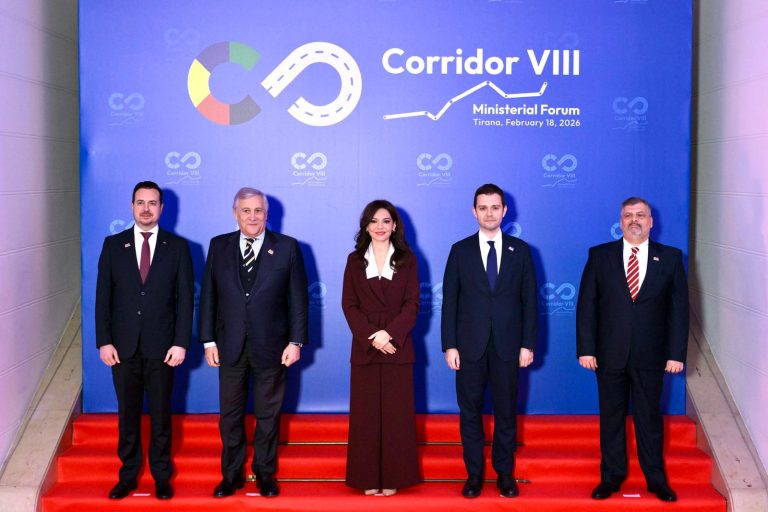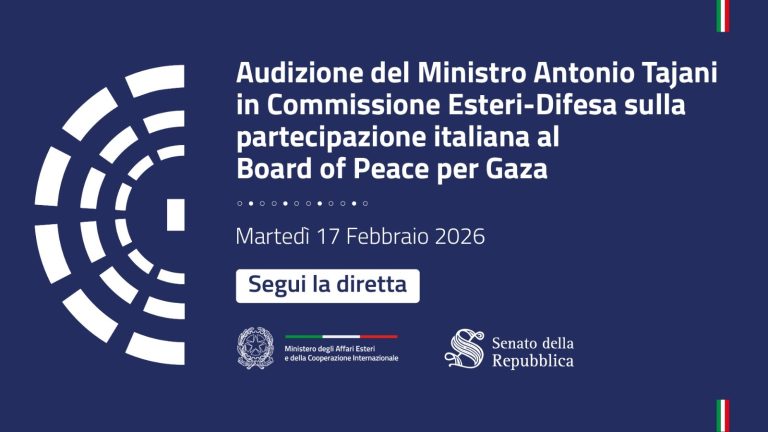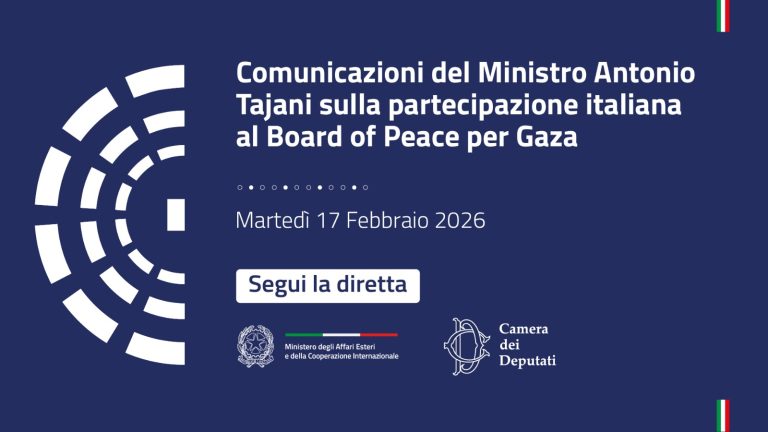The Foreign Minister doubts that the Unicredit-Bpm merger can be a risk to national security. He suggests a large single market without tariffs between Europe, the United States, Canada and Mexico
EU-style golden power
The golden power on Unicredit-Banco Bpm? «I have doubts about the existence of risks to national security». The disagreements between Italy and France on Stm? «Italy will not give up its shareholder prerogatives». The increase in defence spending? «We could also derogate from the Stability and Growth Pact». And President Trump’s tariffs? «A real strategic goal for all of us would be a large single market without tariffs between the European Union, the United States, Canada and Mexico». Antonio Tajani took stock of the most important international and domestic political issues. The Italian Minister of Foreign Affairs and Deputy Prime Minister spoke to MF-Milano Finanza from the terrace of his hotel in Brescia, where on Thursday 5 June he met the Indian Minister of Commerce and Industry, Piyush Goyal, to strengthen trade that in 2024 exceeded 14 billion euros. Italy is taking action in parallel with the European Union to open new markets and stem the possible negative effects of Donald Trump’s tariffs. But now a clash could open up with the EU because the Commission fears that the golden power on Unicredit-Banco Bpm is incompatible with EU law. “Forza Italia has immediately expressed reservations about the legal basis of the measure,” Tajani said, thus indirectly making an assist to CEO Andrea Orcel. “Our policy line has prevailed and it seems to me that a constructive dialogue has been established between Unicredit and the government.”
Will the decree be reworded?
The provisions do not necessarily have to be changed; an interpretation in accordance with EU law may be enough. The important thing is to find a solution, avoiding a tug-of-war within the majority and with the European Commission, remembering that the ultimate goal is always the protection of Italian companies.
What do you mean?
There are 270 Italian companies operating in Russia in compliance with sanctions. I therefore have doubts about the provision that requires Unicredit to leave the country within nine months. It would mean leaving our companies to themselves because, without that bank, they will be left without the services necessary to operate in Russia. This is also the reason why it is important that common sense prevails and the constructive dialogue already started continues.
Yet the Ministry of Economy and Finance continues to maintain that the provision will not change.
I hope that a solution will be found soon. Politicians should confine themselves to indicating the rules, limiting their presence on the market: the success of companies must depend on mutual competition.
In companies such as Stm, however, the States are partners. The conflict between the shareholders Italy and France over the governance of the chip company has become more intense. Can it be resolved?
As is the case with Unicredit, dialogue needs to prevail. But this does not mean neglecting our prerogatives. As a country, we cannot give up our presence in Stm, which must be conciliatory but not yielding, which are two very different approaches.
Do you also rule out splitting the company in two?
We will not proceed in this direction. I think instead that a win-win solution is needed. In the past, divisions between Italy and France favoured Russia in Libya. It is therefore better to adopt a pro-European attitude. But the meaning of this term must be clarified: we will not open the doors to the other EU companies if the other governments do not do the same, as happened to Unicredit in Germany or Fincantieri in France.
The European interest has so far united Member States on tariffs. Negotiations with the United States are progressing, but an agreement remains far away.
Every negotiation requires long dialogues that serve to fully understand mutual positions. The EU must open up to some US requests, without bowing its head. There is a trade deficit to our advantage that we need to fill by investing and buying more from the United States. This will also enable us to increase exports to the US market, which remains a priority.
Trump is demanding steps back on VAT and on the rules for big tech. Can we accept?
Concessions shall be reciprocal to find a win-win agreement. I remain optimistic because the USA has reached an agreement with China, Mexico and Canada, and will also find one with the European Union. As Italy, we will help the European Commission negotiate, without forgetting to protect national production and pursuing a 360-degree approach.
What do you mean?
Europe’s priority must be a large single market without tariffs with Canada, the United States and Mexico, but it will not be easy. To overcome trade tensions, in the meantime it is worth exploring other outlet markets and, by the end of the year, I hope that the EU will announce three free trade agreements with Mercosur, Mexico and India.
What advantages does the Asian country offer to Italy?
It is the most populated country in the world and the starting point of the Imec corridor, which reaches Trieste and is an alternative to the Chinese Silk Road. India is an opportunity for our companies, especially those in the wine, energy, space and components sectors: we hope that they will soon create joint ventures with India in Africa and South America. India’s Minister of Commerce Goyal showed me important openings on the import of medium-high range Italian wine into his country. Closer relations with India will help us increase exports from the current 623 billion to the 700 billion we have set as our goal by the end of the legislature.
Another goal will come from NATO, i.e. to bring defence spending to 5% of GDP. How long will it take us to do that?
It will take time. We have met the previous target of 2% and now we need to understand how to increase military investment by dealing with the United States. It would certainly be a contradiction if the United States imposed tariffs on us and then asked us to spend more on defence.
But where will we find the resources? The Italian public debt is among the highest in the world.
Italy, too, could derogate from the Stability and Growth Pact as suggested by the European Commission. It is a path that we will discuss within the government and I am not against it a priori. However, we shall explain to citizens why we will not follow it also for healthcare or education. We will make Italians understand that security is a broader idea than just tanks, which includes terrorist infiltration and cybersecurity. To achieve this goal, we will focus on infrastructure with civilian uses as well, such as the Bridge over the Strait of Messina, which falls within the concept of defence considering that Sicily is a NATO platform.
Speaking of the Atlantic Alliance, the USA is unable to stop the war in Ukraine. Is peace possible?
Vladimir Putin continues to distance himself by using Ukrainian reprisals as an excuse, but if he suffers them it is because he attacked first. The issue in this case is also economic. Russia has an army of one million soldiers, each of them paid twice as much as a worker. Russia’s industry has been converted into a war industry and Putin therefore needs time to dismantle his war economy. I remain cautious about sanctions, but in the absence of Russian concessions we could use them to deprive Russia of money for soldiers’ salaries. To convince the Russian government to choose the path of negotiation. The priority remains peace, which however passes through the security of Europe and Ukraine.




